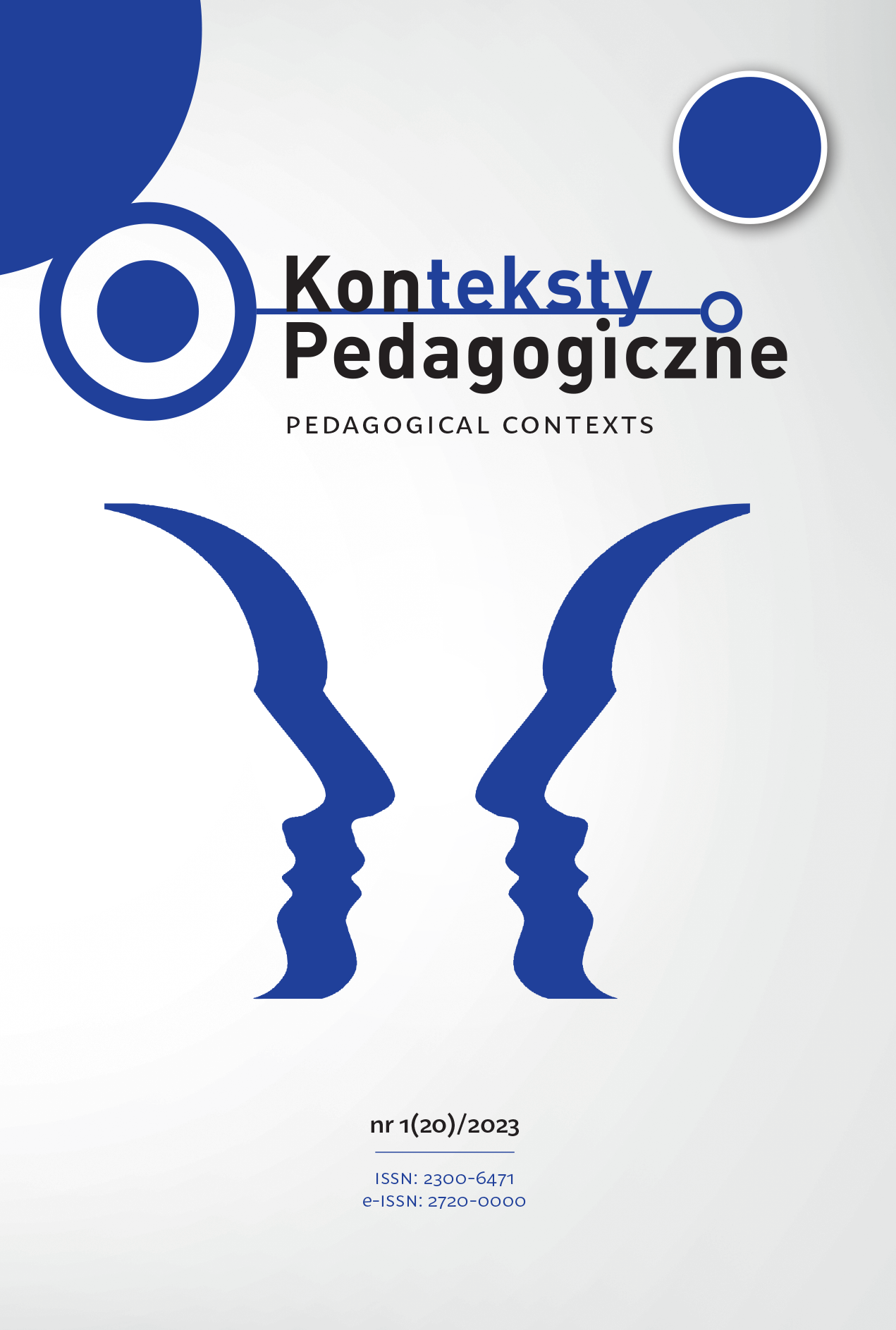Abstract
The paper analyses the language of child protagonists of contemporary literary works to investigate the probable ways and the extent to which it most likely attempts to get closer to the truth about the being in the world of a young person. Is it possible to define the framework of the linguistic cognitive function in search of a comprehensive as well as a holistic picture of the world and its sense-making interpretation? Is the need to establish the language of children protagonists’ identity with the language that describes unprecedented, unusual, difficult, or even extreme situations from the perspective of an adult literary “Me” self-justifiable enough, and if so – to what extent? This hermeneutic reflection is inseparably inspired by the thought and – at the same time – the concern for truth in the literary vision of the world offered to children, which escapes the infantilising model of early childhood education pedagogy.
References
Bachelard, G. (1975). Wyobraźnia poetycka. Wybór pism. Warszawa: Państwowy Instytut Wydawniczy.
Bielska, E. (2018). Niewrażliwe państwo, wrażliwa literatura. Prace Swietłany Aleksijewicz jako egzemplifikacje traumy (nie)wypowiedzianej. Kultura Współczesna, 4(103), 70–80.
Bieńczyk, M. (2000). Melancholia. O tych, co nigdy nie odnajdą straty. Warszawa: Sic!
Caruth, C. (2010). Teoria traumy jako siła lektury. Cathy Caruth w rozmowie z Katarzyną Bojarską. Teksty Drugie, 6, 125–135.
Chmielewska, I. (2011). Pamiętnik Blumki. Poznań: Media Rodzina.
Cieślikowski, J. (1985). Literatura osobna. Warszawa: Nasza Księgarnia.
Combrzyńska-Nogala, D. (2012). Bezsenność Jutki. Łódź: Wydawnictwo Literatura.
Czaja, D. (2009). Lekcje ciemności. Wołowiec: Wydawnictwo Czarne.
Danek, D. (2012). Śmierć wewnętrzna. Literatura w świetle doświadczenia psychoanalitycznego. Gdańsk: Słowo/obraz terytoria.
Hendrykowski, M. (2015). Twarz totalitarna. Teksty Drugie, 1, 161–177.
Kasdepke, G. (2018). Poradnik hodowcy aniołów. Gdańsk: Adamada.
Klus-Stańska, D., Bronk D. i Malenda A. (red). (2011). Pedagogika wczesnej edukacji. Dyskursy, problemy, otwarcia. Warszawa: Wydawnictwo Akademickie ŻAK.
Kuszak, K. (2018). Motyw rozstania w literaturze dla dzieci – perspektywa pedagogiczna. Studia Edukacyjne, 50.
Levinas, E. (19860). [Twarz i zewnętrzność]. W: Maski. T. II (wybór, oprac. i red. M. Janion i S. Rosiek). Gdańsk: Wydawnictwo Morskie.
Mikołajewski, J. (2016). Wędrówka Nabu. Il. J. Rusinek. Kraków: Austeria.
Papuzińska, J. i Leszczyński, G. (red.). (2002). Kultura literacka dzieci i młodzieży u progu XXI stulecia. Warszawa: CEBID.
Scheler, M. (1994). Cierpienie, śmierć, dalsze życie. Pisma wybrane, tłum. A. Węgrzecki. Warszawa: Wydawnictwo Naukowe PWN.
Sinica, M. (2006). Wybrane obszary badań edukacji literackiej. Zielona Góra: Oficyna Wydawnicza Uniwersytetu Zielonogórskiego.
Starobinski, J. (2017). Atrament melancholii. Gdańsk: Słowo/obraz terytoria.
Tischner, J. (2006). Filozofia dramatu. Kraków: Znak.
Ungeheuer-Gołąb, A. i Kopeć U. (red.). (2006). Literatura i inne sztuki w przestrzeni edukacyjnej dziecka. Rzeszów: Wydawnictwo Uniwersytetu Rzeszowskiego.

This work is licensed under a Creative Commons Attribution-ShareAlike 4.0 International License.
Copyright (c) 2023 Pedagogical Contexts

